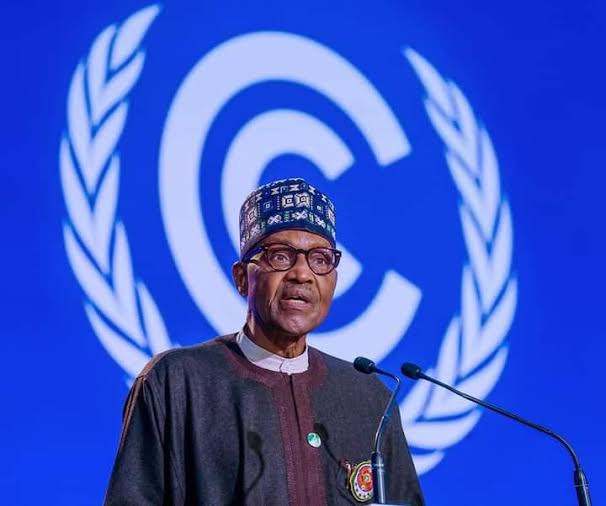As the world prepares for another United Nations Climate Change Conference, COP 27, to be hosted by Egypt in November experts looking at Africa to provide possible solutions to the climate crises. Nigeria, the self-styled giant of Africa is leading the way with the launch of Nigeria’s Energy Transition Plan, a roadmap to tackle the dual crises of energy poverty and climate change.
Nigeria’s leadership and pioneering role in the region has been well applauded while emphasizing the need for data-driven country-level energy transition plans that recognize the unique pathways each country would need to take to achieve a just, inclusive, and equitable energy transition for all.
Every African country has signed the Paris Agreement and some, including Nigeria have announced net-zero pledges. But the lack of electricity has hurt livelihoods and destroyed the dreams of hundreds of millions of young people.
Despite climate experts and activists in Nigeria raising questions on how realistic Nigeria’s commitment to cutting its carbon emission to net zero by 2060 is, Nigeria has taken another step at making the dream a reality.
It would be recalled President Muhammad Buhari while speaking at the day two of the world leaders’ summit held last year, in Glasgow, United Kingdom, affirmed the country’s commitment to cut its carbon emission to net zero by 2060.
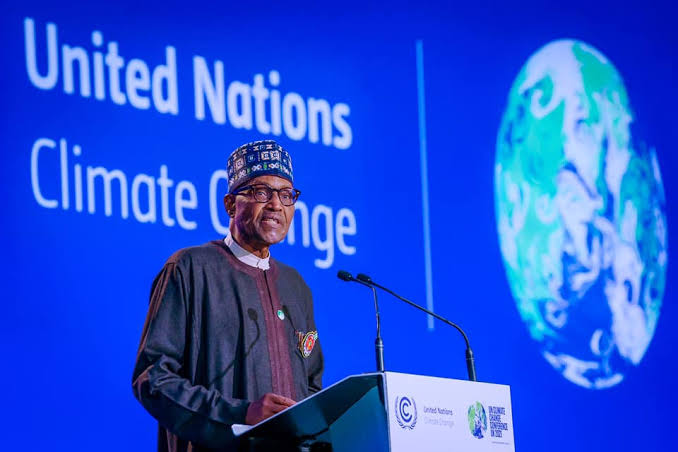
President Buhari informed the audience that Nigeria’s revised nationally determined contribution has additional priority sectors, water and waste, nature-based solutions, adaptation and resilience, vulnerability assessment, clean cooking, gender, and green job assessment, as well as a bottom-up renewable energy transition pathway to 2030.
While acknowledging the importance of COP26 amid obvious changes in the climate, Mr Buhari said that climate change is not about the problem of the future but about what is already happening.
Since the announcement, the Climate Change Act 2021 has been passed, the ETP has been fully approved by the Federal Government and an Energy Transition Implementation Working Group (ETWG) chaired by Vice President Prof. Yemi Osinbajo (SAN), comprising several key ministers and supported by an Energy Transition Office (ETO) has been established.
The country’s Vice President Professor Yemi Osinbajo (SAN) in his remarks delivered at the global virtual launch of the project on Wednesday, August 24, 2022, says Africa’s increasing energy gaps require collaboration to take ownership of the continent’s transition pathways and the action should be decisive and urgent.
Speaking on the need to have a peculiar transition plan, the Vice President said “for Africa, the problem of energy poverty is as important as our climate ambitions. Energy use is crucial for almost every conceivable aspect of development. Wealth, health, nutrition, water, infrastructure, education, and life expectancy are significantly related to the consumption of energy per capita.”
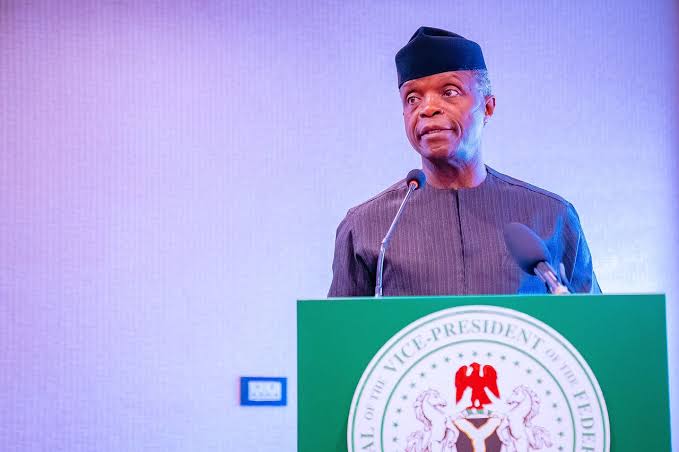
The VP who highlighted the significant scale of resources required to attain both development and climate ambitions, said Nigeria would need to spend $410 billion above business-as-usual spending to deliver our Transition Plan by 2060, which translates to about $10 billion per year.
“The average $ 3 billion per year investments in renewable energy recorded for the whole of Africa between 2000 and 2020 will certainly not suffice,” he added.
Additionally, the Vice President noted that “we have an inter-ministerial Energy Transition Implementation Working Group, which I chair. We are currently engaging with partners to secure an initial $10 billion support package ahead of COP27 along the lines of the South African Just Energy Transition Partnership announced at COP26 in Glasgow,” he said.
Speaking on the effects of Climate Change in Africa, Prof Osinbajo explained that “climate change threatens crop productivity in regions that are already food insecure, and since agriculture provides the largest number of jobs, reduced crop productivity will worsen unemployment.
“It is certainly time for decisive action, and we just cannot afford to delay. African nations are rising to the challenge. All African countries have signed the Paris Agreement and some countries, South Africa, Sudan, Angola, and Nigeria have also announced net-zero targets.”
Giving more details on energy poverty in Africa, the VP noted that “the current lack of power hurts livelihoods and destroys the dreams of hundreds of millions of young people.
“And although Africa’s current unmet energy needs are huge, future demand will be even greater due to expanding populations, urbanization, and movement into the middle class,” he said.
Underscoring the importance of collaboration, the Vice President then noted that “we developed our Energy Transition Plan to engage with the rest of the world in a serious, thorough and data-backed manner.”
Prof. Osinbajo explained that “there is a clear need for African nations to engage more critically and vocally in conversations on our global climate future.
“More importantly, we need to take ownership of our transition pathways and design climate-sensitive strategies that address our growth objectives. This is what Nigeria has done with our Energy Transition Plan.”
Making reference to the Nigeria Energy Transition Plan, the Vice President said “The plan was designed to tackle climate change and deliver SDG7 by 2030 and net-zero by 2060, while centering the provision of energy for development, industrialization and economic growth.”
According to him, “we anchored the plan on key objectives including lifting 100 million people out of poverty in a decade, driving economic growth, bringing modern energy services to the full population, and managing the expected long-term job losses in the oil sector due to global decarbonization.
“Given those objectives, the plan recognizes the role natural gas must play in the short term to facilitate the establishment of baseload energy capacity and address the nation’s clean cooking deficit in the form of LPG.
“The plan envisions vibrant industries powered by low-carbon technologies; streets lined with electric vehicles and livelihoods enabled by sufficient and clean energy.”
On other aspirations of the roadmap, Prof. Osinbajo explained that “the plan has the potential to create about 340,000 jobs by 2030, and 840,000 by 2060. It also presents a unique opportunity to deliver a true low-carbon and rapid development model in Africa’s largest economy.”
“We are currently implementing power sector initiatives and reforms focused on expanding our grid, increasing generation capacity, and deploying renewable energy to rural and underserved populations.”
Aside from the transition plan, the Vice President announced the launch of the Universal Energy Facility “an innovative, results-based, finance programme that focuses specifically on scaling up electricity access for productive uses.”
He explained that “the Universal Energy Facility will provide grant payments to enable solar companies to expand their operations to small and medium-sized enterprises across Nigeria, while crowding in additional private capital.”
“Projects supported by the Universal Energy Facility will help grow businesses and create jobs, making them key contributors to our Energy Transition Plan.
“I’d like to encourage solar companies in attendance today to engage with this innovative financing opportunity, which is being managed by Sustainable Energy for All,” he added.
At the virtual event, Mr. Shubham Chaudhuri, Nigeria’s Country Director for the World Bank said the bank plans “to commit over USD 1.5 billion towards the Energy Transition Plan on renewable energy, on power sector reforms, on clean cooking, and wherever opportunities arise.”
In a similar vein, Mr. Adam Cortese, CEO, of Sun Africa stated that “the launch of Nigeria’s Energy Transition Plan has further accelerated our efforts, proving Nigeria to be fertile grounds for investments in the sector. We are in the final stages of discussion with US EXIM Bank on a USD 1.5 billion financing package.”
About the ETP
The Nigeria Energy Transition Plan (ETP) is a home-grown, data-backed, multipronged strategy developed for the achievement of net-zero emissions in terms of the nation’s energy consumption.
The Nigeria ETP sets out a timeline and framework for the attainment of emissions’ reduction across 5 key sectors; Power, Cooking, Oil and Gas, Transport and Industry.
Within the scope of the ETP, about 65% of Nigeria’s emissions are affected.
The additional cost of the energy transition above usual spending translates to ~$10 billion annually over the coming decades.
To kickstart the implementation of the ETP, Nigeria seeks to raise an initial $10 billion support package ahead of COP27.
However, the nation has even greater room for investment. A $23 billion investment opportunity has been identified based on current in-country programs and projects that are directly related to the just energy transition.
In an article by Climate Scorecard in August 2021, it concluded that if Nigeria were to achieve a goal like becoming carbon neutral, what would be an obstacle, apart from government incompetence, is the nature of the developing economy and the country’s overdependence on fossil fuels.
It states that “The country’s economy is closely tied to oil and gas exports. Profits from petroleum exports currently account for 86% of Nigeria’s total export revenue” (Carbon Brief) Additionally, Oil and Gas collectively provide 70% of Nigeria’s revenue.
Thus, as a developing economy, Nigeria relies heavily on the production of non-renewable resources. The economy needs all the support it can get so it is very unlikely that Nigeria will slow down any of its oil production. This will make it very hard for the country to become carbon neutral by 2050.” the article concluded.
Experts React
A Kwara-based Climate Justice Advocate Wale Bakare, said he does not believe the Federal Government of Nigeria has the political will to achieve a carbon emissions net zero by 2060.
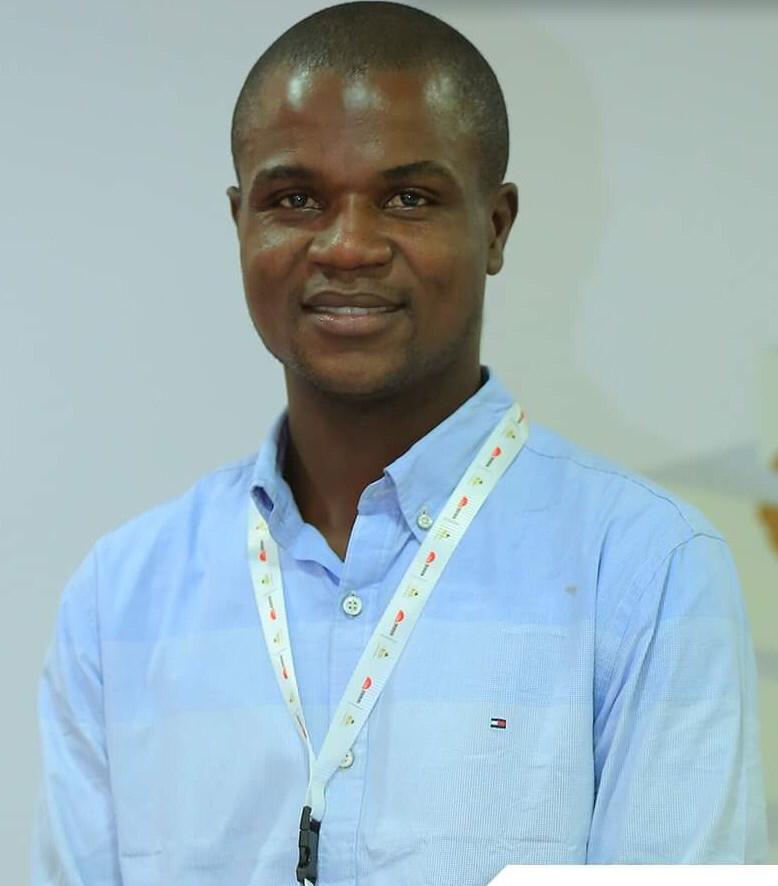
According to him, “Nigeria leaders don’t have the political will to achieve carbon emissions to net by 2060. Our country economy majorly relies on fossil fuels without any strategic plans from our leaders to diversify to other sectors like agriculture, technology, etc.
“We cannot provide 24-hour electricity and we are talking about hitting net zero by 2060? if other sectors are not heavily invested in, Nigeria will be prone to financial challenges which will make it very hard for our country to achieve carbon neutrality by 2060.
“I have not seen any clear plan on how Nigeria will cut its carbon emissions to net zero by 2060 in the next 38 years,” he said.
Bakare also said the government’s commitment to land restoration to boost agriculture in the country is low, partly due to the insecurity bedeviling the country, especially in the Northern region.
“Our government has neglected commitment to land restoration for productive agriculture as most of our farmlands have been taken up by insurgence of armed banditry and terrorism without any significant progress made by our government and has led to serious hikes in food prices causing serious hardship on its citizens,” he said.
Bakare, however said the recently launched energy transition plan is realistic if the strategy is in place and the right set of people are in charge to deliver it.
A Global Climate activist and Executive Director of Brain Builder Initiative (Climate Education non-profit) Abideen Olasupo, commended the Nigeria government for the launch of the Energy Transition Project which he says is a right step in the right direction.

He said it will help the country achieve the promises it made at COP 26, which he attended as President Buhari was making the promises. He advised that civil society organizations and every should look for a way to collaborate with the government and ensuring all hands are on deck to understand these issues and help the government to achieve its plans.
However, he expressed fears that the issue surrounding these policies is the acceptability of Nigerians especially those who are affected, but not available during the formulation of these policies.
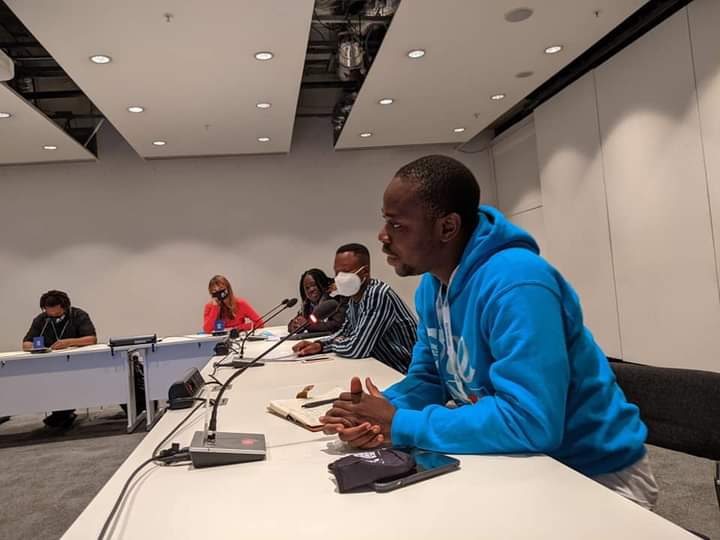
According to him “Most times there is no political will from the government to achieve this, how many people in our community know about these issues, are we teaching climate change in our schools?
“Most people grossly affected by the effect of climate change are not always present at the decision-making table, the same issue was raised at COP 26 wherein we are formulating policies for those who are affected but are not always there to lend their voices.
“It is a process because the issue of awareness is still poor and if there is no knowledge about the issues how do we get the people to embrace the framework?
“The government needs to come down and localise these campaigns, the same way politicians visit different communities during campaigns same should be applied to issues around climate change.
“Aside that 19 climate change is another pandemic we need to deal with, especially in Africa, “he said.
By Dare Akogun


